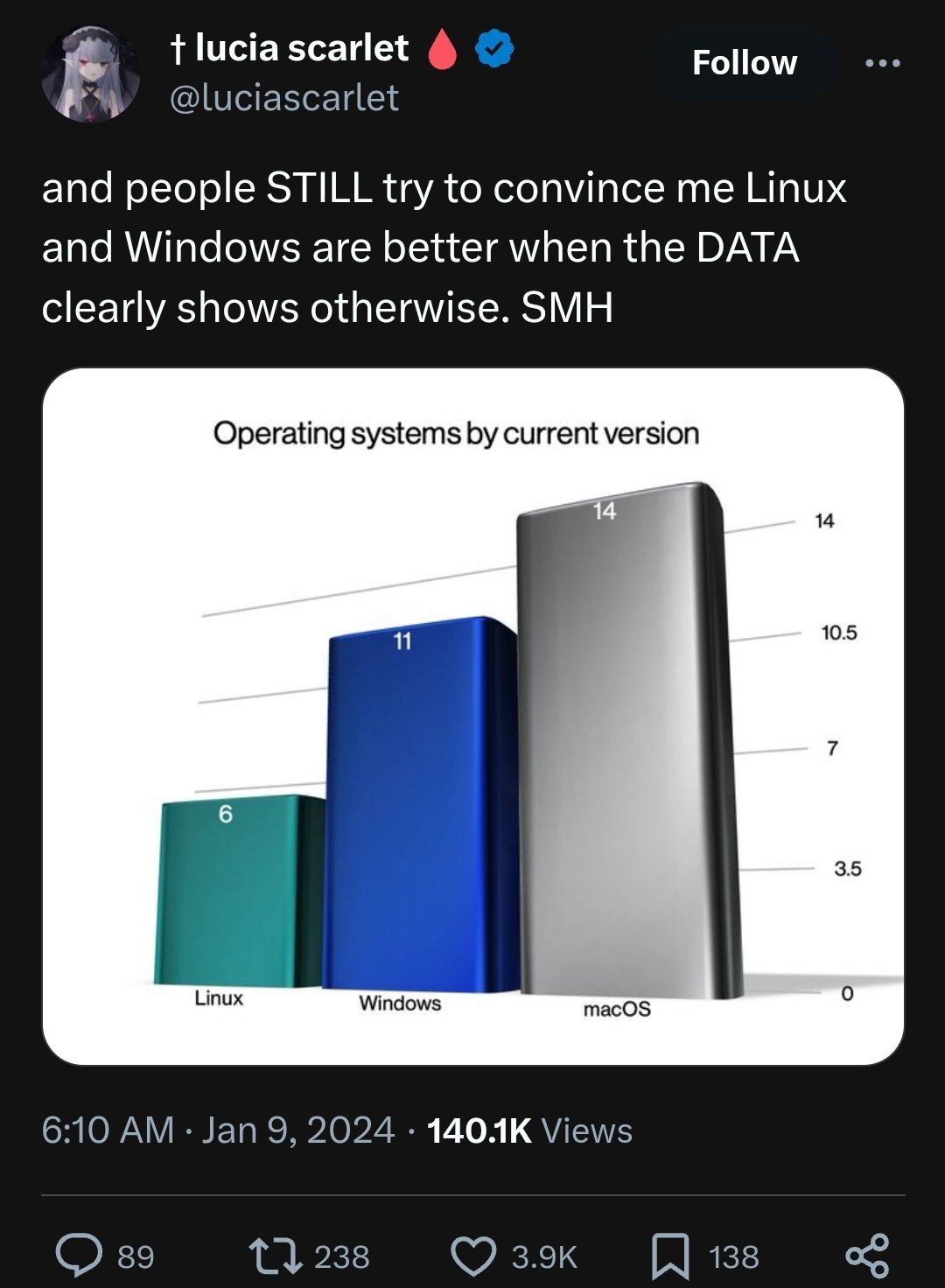this post was submitted on 09 Jan 2024
1170 points (94.5% liked)
Linux
48824 readers
676 users here now
From Wikipedia, the free encyclopedia
Linux is a family of open source Unix-like operating systems based on the Linux kernel, an operating system kernel first released on September 17, 1991 by Linus Torvalds. Linux is typically packaged in a Linux distribution (or distro for short).
Distributions include the Linux kernel and supporting system software and libraries, many of which are provided by the GNU Project. Many Linux distributions use the word "Linux" in their name, but the Free Software Foundation uses the name GNU/Linux to emphasize the importance of GNU software, causing some controversy.
Rules
- Posts must be relevant to operating systems running the Linux kernel. GNU/Linux or otherwise.
- No misinformation
- No NSFW content
- No hate speech, bigotry, etc
Related Communities
Community icon by Alpár-Etele Méder, licensed under CC BY 3.0
founded 5 years ago
MODERATORS
you are viewing a single comment's thread
view the rest of the comments
view the rest of the comments

We don't have a consistent convention as to what changes qualify for a version increment rather than update increment. A new kernel? A new interface convention? New icons for the mini-apps?
Windows 10 has more plug-and-play drivers than Win7 and Win8. It can recognize newer hardware and it can be installed natively from thumb drives. So a lot of features that were third party are now offical... long after I had access to the third-party libraries.
But then it combines the metro and the start menu. I never found a use for the metro.
Win11 is less operability and more DRM and more spyware.
For Apple and Microsoft, a new version is a new marketing season. It's the same as the new iPhone, the new Subaru.
I assume Linux builds increment with significant operability additions, especially if they're not fully backwards compatible. Since they're released without charge the capacity to do more stuff is the only reason to upgrade to a new increment rather than preserving a stable version.
The version number will be incremented when Linus says so. He might even increment it to 7.x tomorrow if he feels like it.
Which only adds bas relief to the point. Linus has no personal or commercial motivation to get people to get the hot new trendy thing. Linux isn't motivated by built-in obsolescence the way Windows and iOS are.
In fact, their higher iteration indicators are a symptom of a disadvantage of the operating system, not an advantage.
You are taking this dumb joke way too seriously.
I get that a lot.